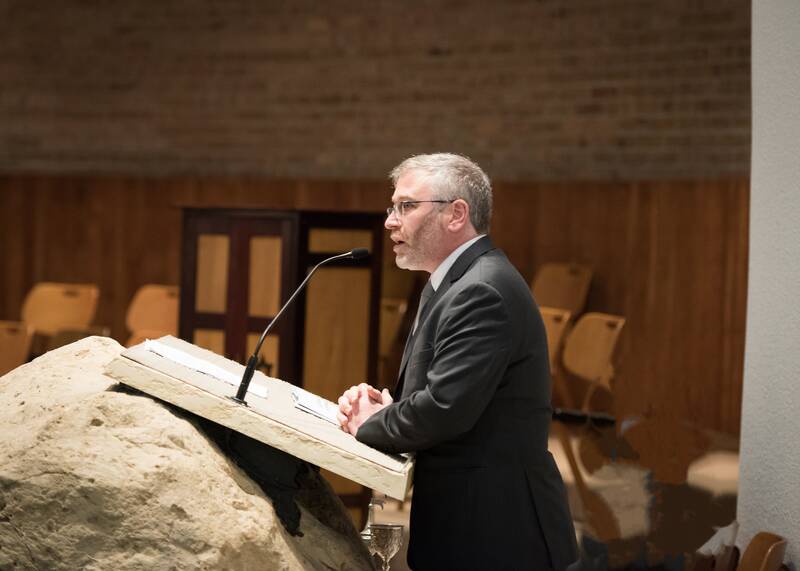Funerals and Memorials

Death is part of life. And so, too, is loving remembrance.
A Humanistic Jewish memorial service is a celebration of life, remembering the departed while meeting the needs of the survivors for comfort and consolation. Through poetry and music, reflection and stories, we find our way to move forward after loss. While Kol Hadash offers many opportunities to remember our beloved departed through monthly yahrtzeit (death anniversary) observances and our annual Yom Kippur Memorial/Nizkor (we remember) service, the moment of loss is often the most difficult, and the most important to mark appropriately. If this life is the only life there is, all the more reason to make the most of it and to focus on how it was lived when it is over.
7 Ways Kol Hadash Does Memorials Differently
1. The centerpiece of a Humanistic Jewish funeral is the story of the life of the departed (the eulogy). Poems, readings, music all support the telling of that life story rather than squeezing the life story into a pre-written ritual.
2. Rabbi Chalom meets with the family (including grandchildren if possible) to learn that life story and plan the funeral together, including choosing music and readings, discussing speakers from family and friends, rituals to include (or not), and the flow of the service. That family meeting sharing stories, laughs and tears may be even more meaningful than the public memorial.
3. Just as Humanistic Jews are in charge of their own lives, so too can they make their own choices regarding death. A choice of conventional memorial service and burial, graveside service, cremation, donation to science, or green burial will be supported with equally meaningful and reverent memorials.
4. Alternatives to conventional prayers and divine praise are often more meaningful because they reflect our beliefs, lived experience and feelings of loss. Rabbi Chalom is an invaluable resource to help guide the family in these choices and to create a service that reflects both their values and those of the deceased.
5. After the memorial, Rabbi Chalom is available (for Kol Hadash members) to lead a home memorial/Shiva service at which family and friends can further reflect and share memories. This is the case even if another clergy person led the public memorial, since many families have diverse religious opinions.
6. We observe yahrtzeits/death anniversaries monthly, but we are happy to read names whenever the family chooses. We can also track the anniversaries on either the Hebrew or the general calendar. And whenever we share memorial names, we open up to anyone to share the name of a friend or loved one whose absence is felt at that moment.
7. You don’t have to be a member of Kol Hadash for Rabbi Chalom to officiate a memorial service for your family, though there is a fee. If you do want to explore membership, our flexible Contributing Membership enables you to choose your own annual financial commitment, and life cycle celebrations are included in membership.
How Humanistic Jews Mark Death and Memorial Services
If you are interested in more information, please feel free to be in touch with Rabbi Adam Chalom by phone (847-602-4500) or email (rabbichalom@kolhadash.com).
